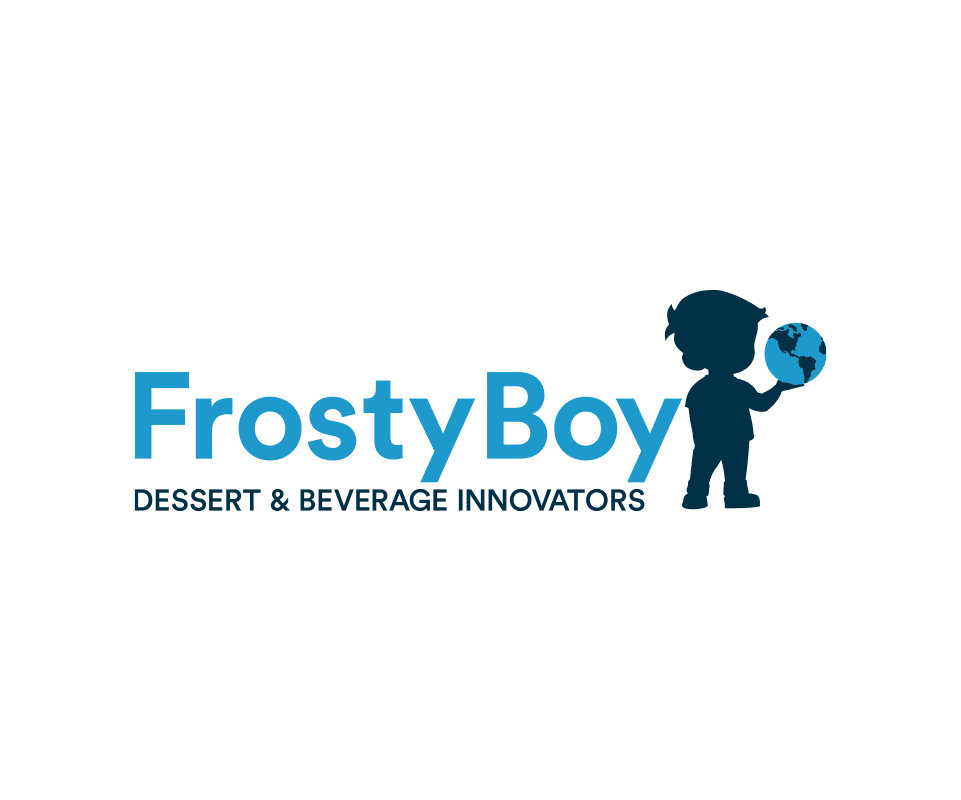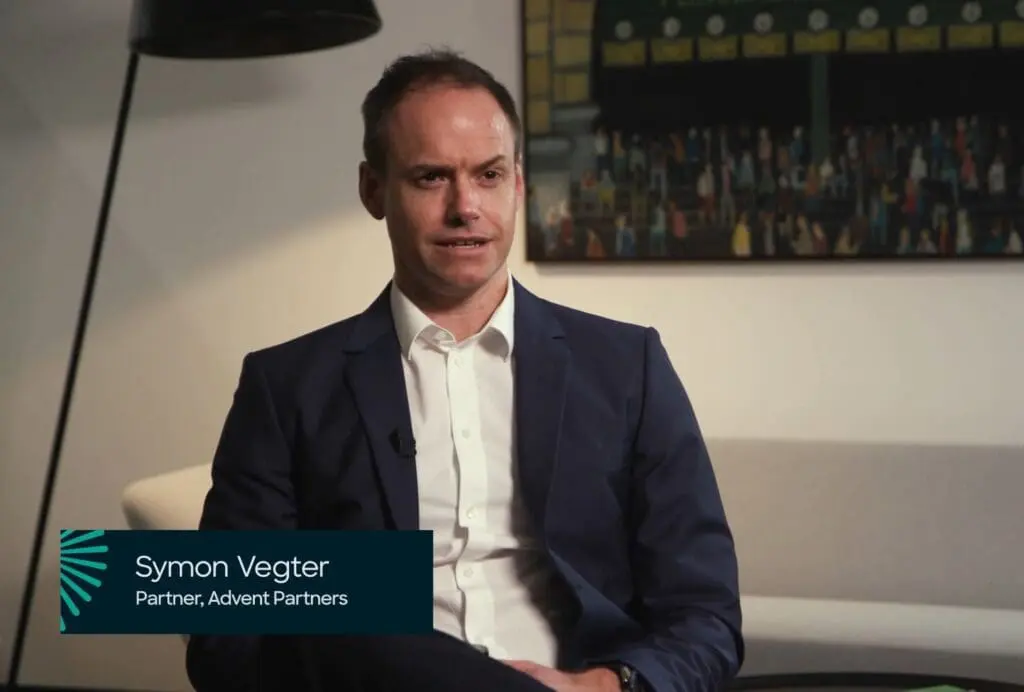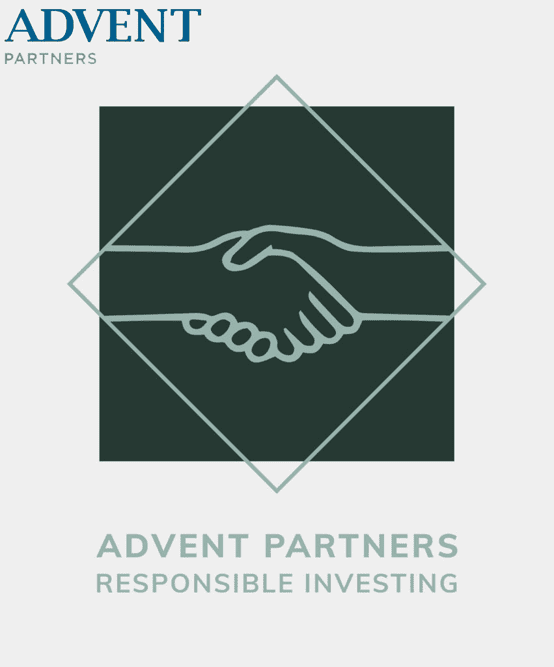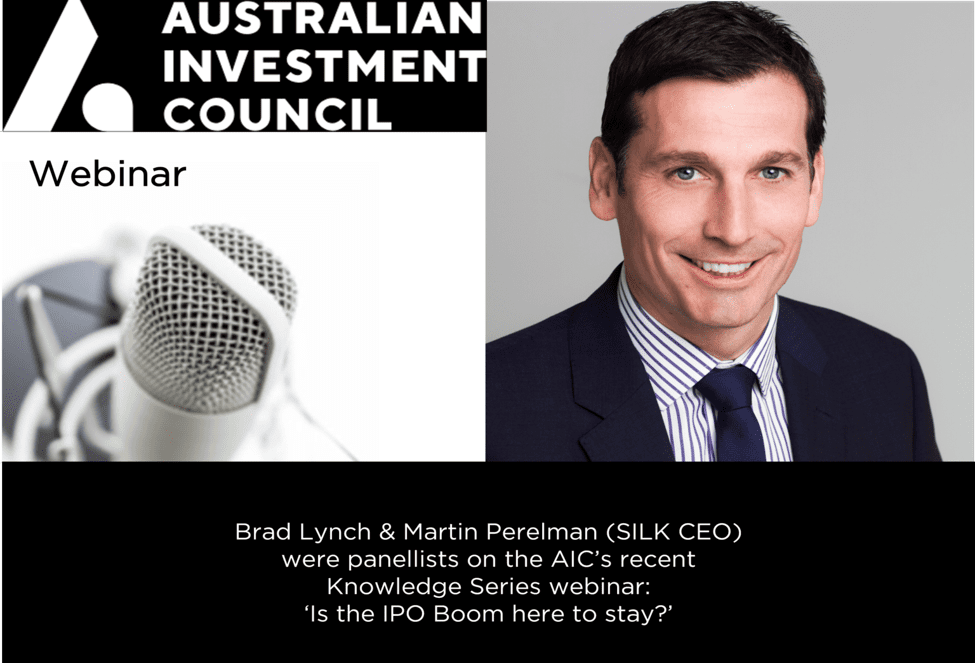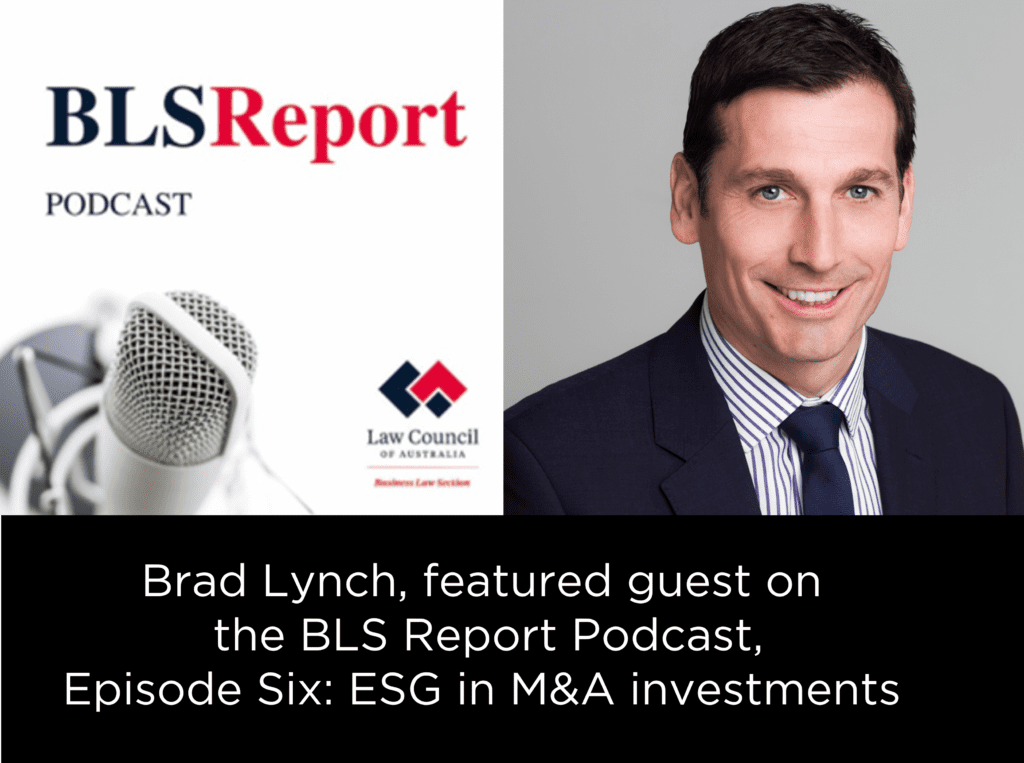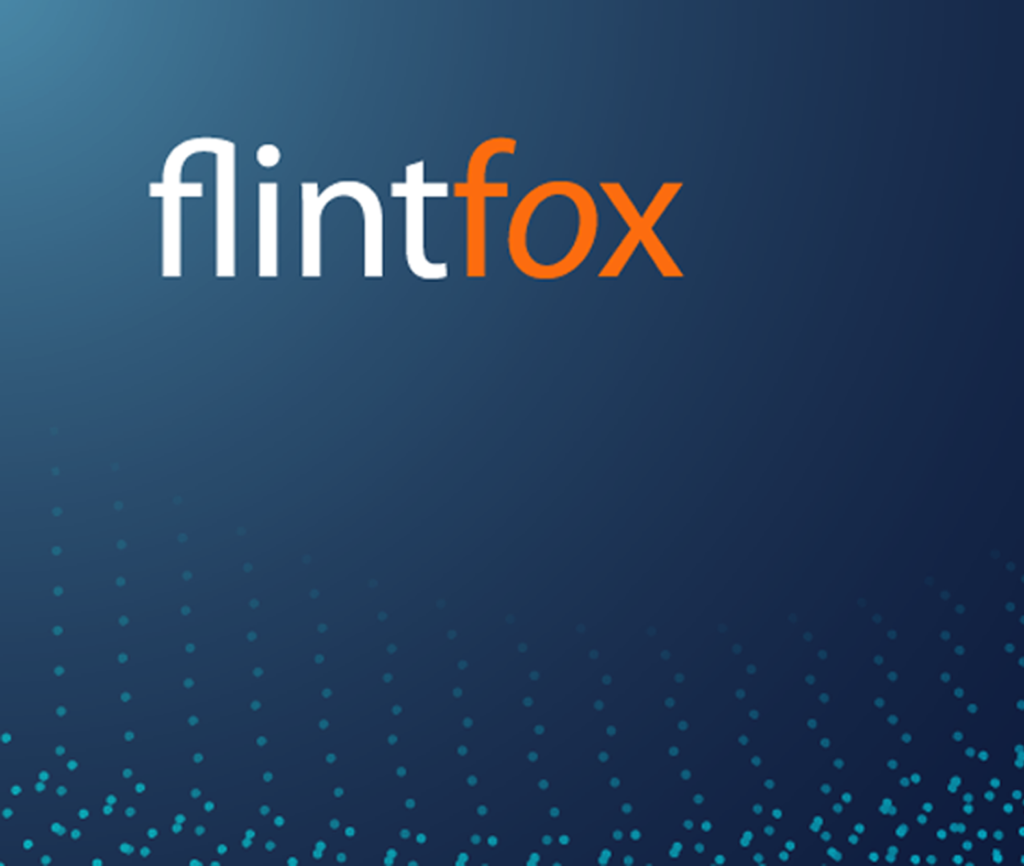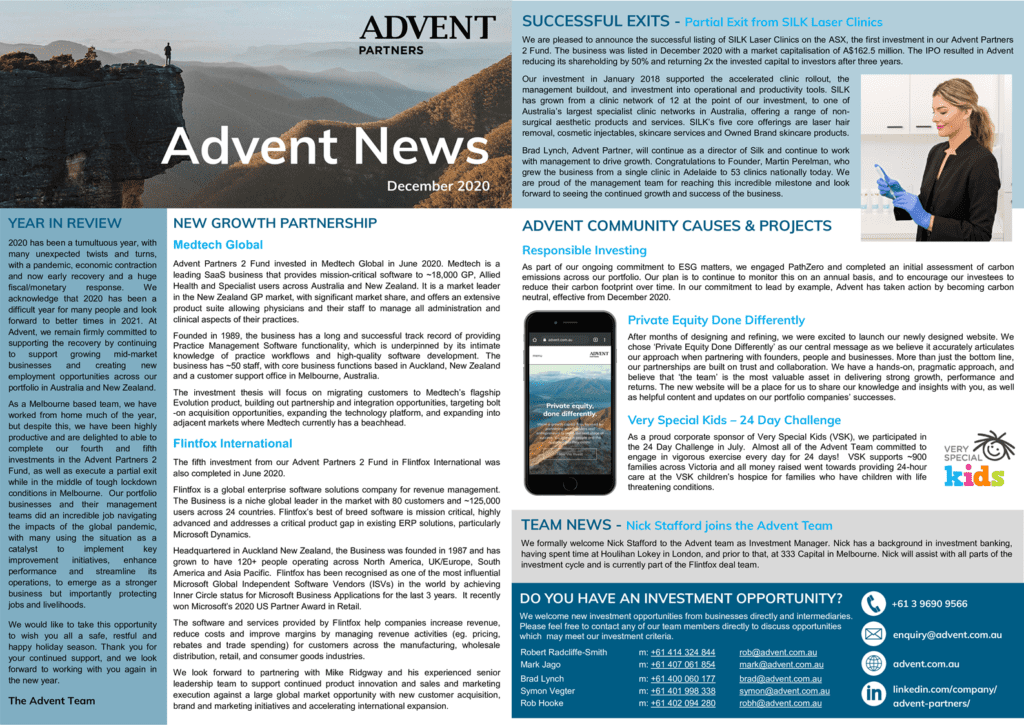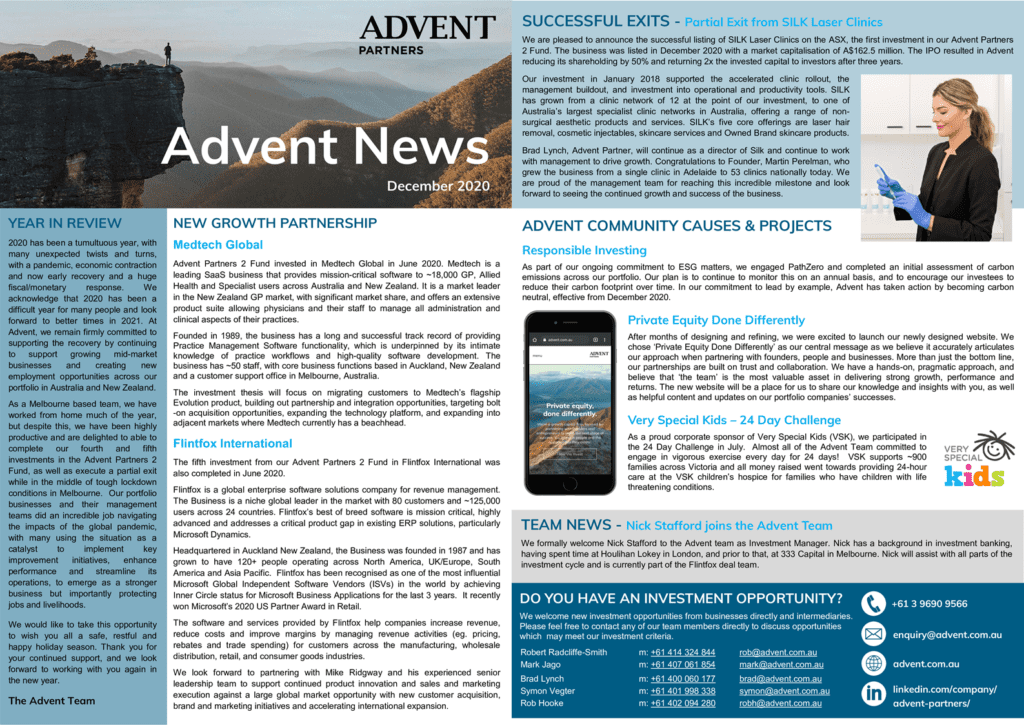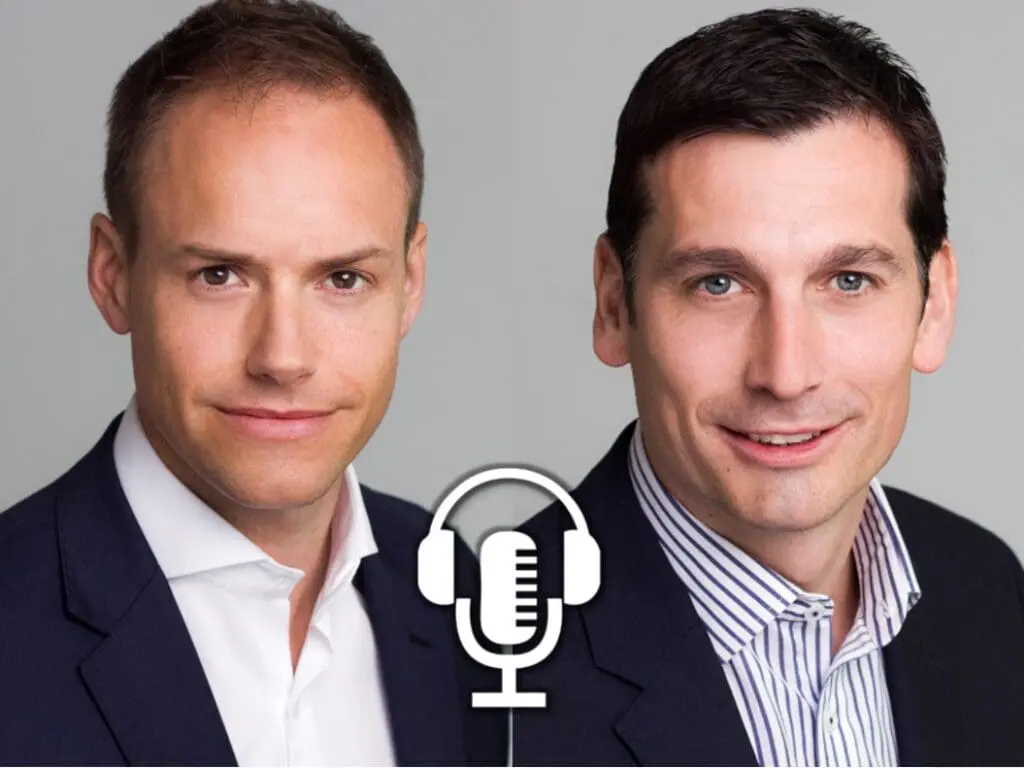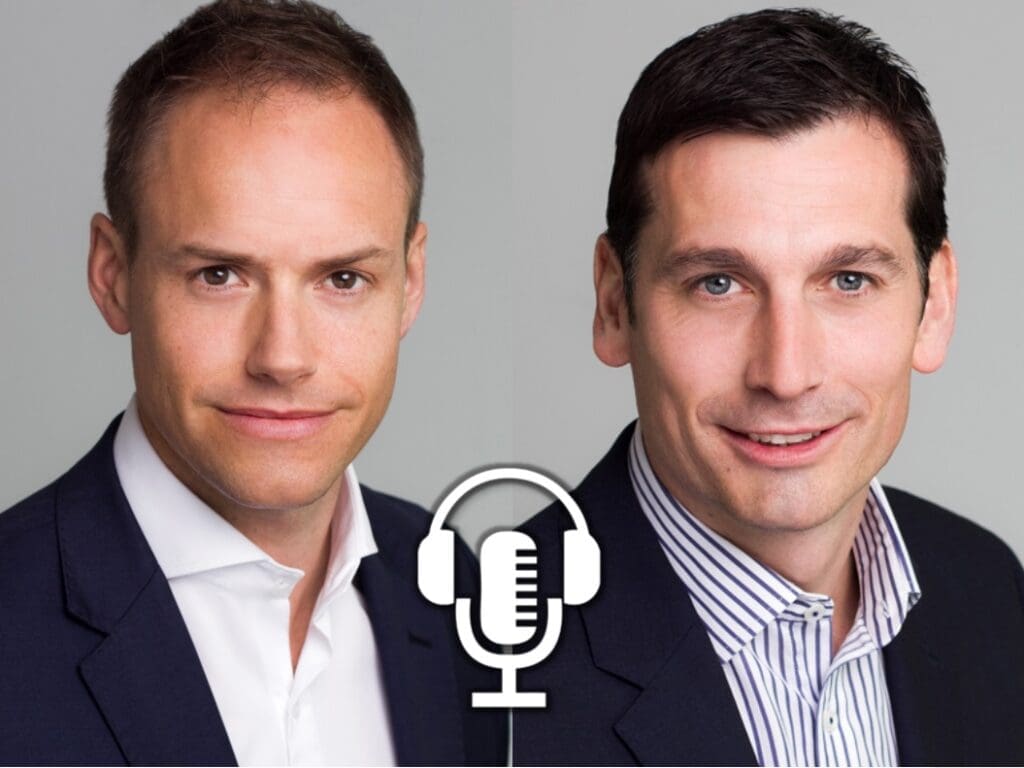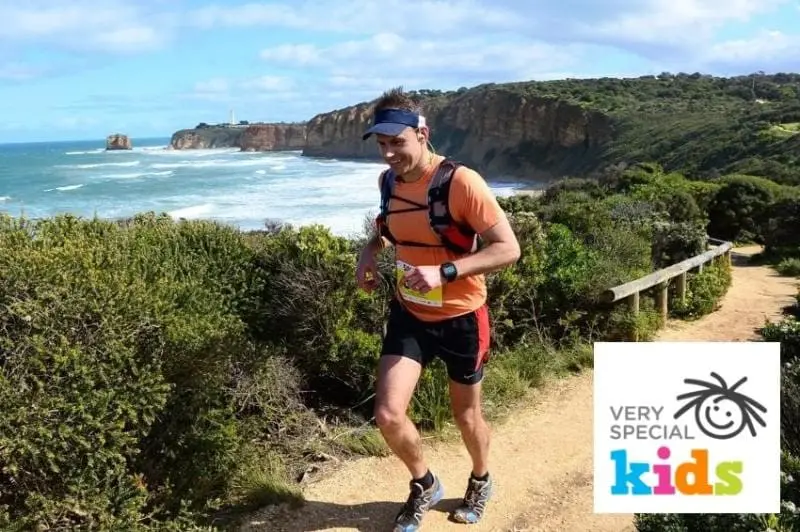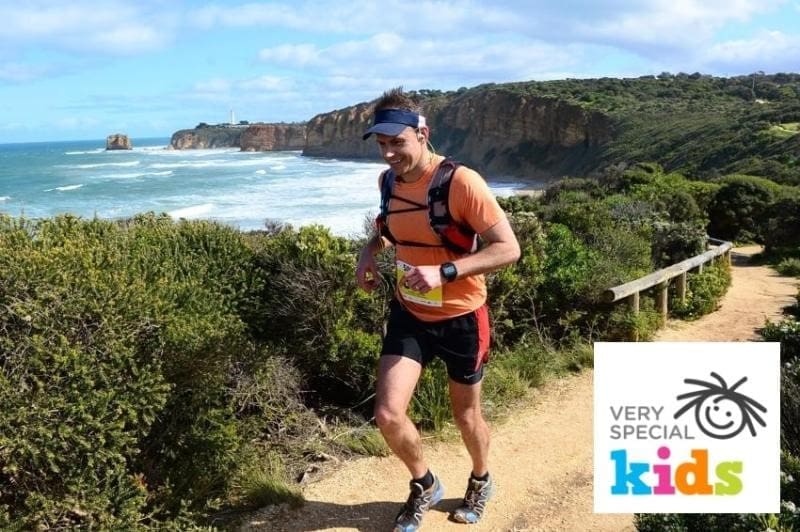
18 January 2021
Symon Vegter was recently hosted by Edward Michelsberg of Emu Search on their Leadership Revolution podcast series. They discuss Advent’s approach to investing and the importance of great founders combined with talent management to grow businesses. Symon shares his insights on Advent’s investment portfolio and what its like to work in a Private Equity-backed business.
Listen on Apple here
Listen on Spotify here
Listen on Emu Search here
_________________________________________________________________________________________
Transcript
Hosted by: Ed Michelsberg
Guest: Symon Vegter of Advent Partners
Welcome to the EMU Podcast Series leadership revolution. In this series, we’ll be talking to a range of leaders across finance, digital and technology to discuss the key opportunities and challenges impacting leadership and how they are adjusting, adapting and planning for the digital age.
Ed Michelsberg
Welcome to the leadership revolution podcast. I’m Ed Michelsberg, a partner of Emu search and today I’m joined by Symon Vegter from Advent partners, one of Australia’s most experienced private equity firms. Advent has over $500 million in funds under management, and has invested in more than 90 businesses since the firm was founded in 1984.
Symon is a partner and co-owner of Advent and he’s originated and led a number of investments and acquisitions for them over the last 13 years. Symon works very closely with founders and management teams to formulate their strategy and accelerate their growth through acquisitions, new product development, and market expansion.
To give our listeners some context, the topics we’ll talk about today include Advent’s investment portfolio, and in particular, their investment strategy. So we can understand what makes an attractive investment from their perspective. We’ll explore what qualities and behaviors Symon and the team look for in the founders, CEOs and leadership teams they invest in. And finally, we’ll get some insight for our listeners on what it’s like to work in a Private Equity-backed business.
Symon, welcome and thank you for joining me.
Symon Vegter
Thanks for having me. Great to be here.
Ed Michelsberg
It was actually great to catch up with you the other week, now that we have come out of lock down. I think I have finally worked off some of those carbs. How have you been traveling?
Symon Vegter
Yes, same. It took a lot to work off that lunch. It was certainly a carb loaded lunch.
Ed Michelsberg
But long overdue, and congratulations on the recent IPO of Silk Laser Clinics looks like a wonderful journey since you partnered with them?
Symon Vegter
Yes, it’s been a great story and a great journey working with Marty and his great management team, and a very exciting day for Advent. It is an amazing milestone for Silk given where we started with them just under three years ago. But we’re only part way through the journey as we’re still a key investor and shareholder. We are now looking forward to working with the team as a listed company.
Ed Michelsberg
Absolutely! Well, look, maybe to start things off, can you tell our listeners a little bit about yourself and your career journey?
Symon Vegter
Sure. I’ve been in advisory and private equity or the broader industry for about 20 years, and over that time I have worked with founders and management teams to help them formulate plans and drive growth. I first started my career at KPMG in audit, but quickly moved into the restructuring and insolvency division. That’s where I really cut my teeth on solving truly difficult business decisions and situations. It was also great experience, in that it provided me a really good context and grounding in what leads to success, or in that context, usually under performance or failure.
I then moved into KPMG’s M&A team, where I focused primarily on private equity or mid-market private equity. That’s where I really enjoyed the discussions with PE firms whilst helping them with buy side or sell side mandates. Then I decided to join the other side of the table and joined Advent in 2007.
Since then I’ve worked across a number of our portfolio companies and across a number of our funds. Although it feels like yesterday I joined, I’ve now been with the firm 13 years. And I’ve really enjoyed the experience, because you can get really deeply involved helping management teams, really get very strong alignment around growth, and helping them build and grow businesses into the future. So it’s been exciting, with plenty of excitement ahead, even after this pretty challenging year we’ve had due to COVID
Ed Michelsberg
Yes, absolutely. I was going to ask you the question. I think you just answered it, but what do you most get a buzz from working in this industry? Is it the sheer sort of diversity of companies you get to work with and build and scale? Would you agree with that? Or are there other things as well that really kind of excited to get out of bed and go to work in the morning?
Symon Vegter
I think it’s working with great people who have passion and purpose. You either get to meet them as part of introduction meetings, or you get to work with them, which is even better. That’s what I get out a bed for and really enjoy.
I think the other element of private equity is that if you like learning, this is the best environment to be in, and I certainly am one of those people. Because you’re always learning about new companies, new industries, new sectors, and new ways to do things better. We like to say, over the last 30 years we’ve been an operation, we’ve got a lot of lessons learned but there are always new ones to learn. And I guess this year, we’ve got the new pandemic lesson or an understanding of how to deal with pandemics. It’s been certainly one of those roller coaster years.
Ed Michelsberg
Absolutely. Could you tell our listeners a little bit about your particular areas of expertise and your portfolio?
Symon Vegter
Sure. As a firm Advent focuses on the mid-market where we try to work very closely with founders and family businesses, as their first institutional investor. What we’re trying to bring and help them with, is not only capital, but our expertise and networks, to really help them accelerate growth or help them build their business. They’re always very successful businesses when we invest, but we want to make them bigger and better over the journey.
Where we typically help and where we’re of great assistance for certain management teams, is around providing liquidity to founders with equity capital upfront. Also by getting all shareholders aligned, whether that be management, other third party shareholders, at the start of the deal.
Then we move to things like helping them with strategy or enhancing their strategy. Really focusing on four or five key things we want to deliver over the journey.
The next key thing we really focus on is sourcing or fostering existing talent in the business. Because we want to make sure we’ve got a great management team in place that’s got the bandwidth and the resources and the capability to deliver the plan. And for us, having the right people is number one in terms of performance and that’s why it is number one in terms of our focus when we first invest. That’s why working with guys like yourself Ed really helps us ensure that we’ve got great networks and great access to great talent here in Australia and New Zealand.
We also provide financing support and, as you’d imagine, M&A support. But then also we’re providing access to all our lessons learned, what we call a toolkit, knowledge libraries, and also the experience of the team we can bring to bear in any situation.
And then finally, it’s about our network of contacts and advisors, whether that be executive search firms such as yourself, or consulting firms, or particular specialist individuals that can help the management team. That’s the real sweetener we provide in terms of our support for the management team.
So that’s our areas of expertise and support. And then when you look at our portfolio it reflects where we focus our attention and time. We really focus on four sectors, which are technology, consumer, education, and healthcare. In our current portfolio we’ve got in technology, Flintfox, Compass, Medtech and Mandoe. Then in consumer, we have Frosty Boy, Silk, which you mentioned earlier, and Tribe Breweries. And then finally, in education, we have Junior Adventures Group.
Ed Michelsberg
Got it. And what’s your philosophy around partnering with your investee companies?
Symon Vegter
For us, it’s all we do. It’s really important for us to build that collaborative working relationship up front and really ensuring we can find a way to work together in a collaborative fashion with our investees. And that’s really about working with the founders to get to know them, get to know their business, get to know their personal objectives, get to know where they want to go and what they want to do, whether that’s within the business or outside. Then we’ve got the flexibility to be able to match our investment to those particular objectives.
We’re very focused upfront on building that relationship so that we can form a very strong partnership across our investment period and to help them grow their business. It’s very much about building trust and helping them truly understand what we can help with.
We also bring to bear our thought process around strategy and where we can assist, to show that we can really help them with that next stage of the journey.
We also focus, at the end of the day, on getting things done. As much as we like to sit around talking, we’re most of the time focused on helping them execute. This is where we try to focus our attention and really trying to help them from a partnership perspective.
Ed Michelsberg
Yes, absolutely. I think you touched on an interesting point. And you said, when you evaluate a potential investment, the key thing you look at initially, is the quality of the founder or the leader. And no doubt, you would always want to seek to invest in a business that has got real pedigree across that leadership team, not just the founder. But is that always the case? Do you always end up with an investee that has got that sort of depth and breadth of leadership pedigree, or is that something that you need to shape in the early stages?
Symon Vegter
It really is on a case-by-case basis and there is a range of different scenarios. And we’re pretty comfortable with all of them. Ranging from a founder with maybe some mid-level management, right through to a very well built out management team, such as Flintfox, where they’d already established a very strong senior leadership team ready for the next stage of the journey. We’re very comfortable operating in either scenario.
Firstly, what we do is sit down with the founder and truly understand from them, where they want to be themselves. Whether they want to continue as the CEO, which is typical, or whether they’d like to transition to another role. Whether that be different role within the business or a non-executive role. And whether that is soon or over our investment period. That’s our starting point.
Then secondly, we spent a lot of time speaking and meeting with the existing management team – truly understanding their capabilities – and whether we can help them improve by bringing some of our experience, to help them in their own career progression and step up into their particular roles if there are gaps there. Then we move quickly to ensuring, if there are gaps from an executive perspective, that we’re hiring and augmenting the team to ensure that I’ve got the team in place to deliver the strategy. We do that pretty quickly and like to have that done within the first six to 12 months to ensure that the team’s they’re ready to go, to really deliver the strategy.
Ed Michelsberg
When you do have to plug a gap, do you often favour people who’ve already got experience working with PE firms? Or is that not really a driving force in who you’d select to put into one of your investees?
Symon Vegter
From our perspective, I think it’s a bonus that they understand the model and the way it works, but to a certain extent, we can educate people as well. So that’s not really our focus. Really it’s about ensuring we’ve got a very strong position description, ensuring that the person has the competencies and capabilities that matches to that position description, and can help deliver the plan for the rest of the team. That’s where we primarily focus. As part of that, the extra bonus would be industry experience or experience in a very similar business. I think that’s where we prefer, rather than having generic PE experience.
Ed Michelsberg
Got it. What tips would you give to somebody joining one of your investee companies at that C-level that haven’t worked with a private equity company before, to make sure they are set up for success? Is it around behaviors or certain attributes that they might need to hone in on? What would be your advice to those people?
Symon Vegter
I think before stepping into a private equity backed business, I think they need to, as always, think about where they are in their career and ensure that this is the type of move or step they want to make, because it is a different working environment. People should do their own due diligence on working in a private equity business. That’s where we encourage executives or our founders to speak to any of our existing management teams to understand what it’s truly like to work within a PE business. Each PE firm is different in their approach and style, and I’m talking today about our style and approach.
This thinking is key for an executive because we describe the environment as compressing a typical seven-year corporate experience into three years of growth. And that’s pretty challenging for certain individuals. People need to be ready for a high paced, highly accountable and very focused working environment. That would be my starting point for advice.
Ed Michelsberg
It’s something I hear very commonly. And to another point that you mentioned, I’ve heard and I’ve experienced that private equity firms have their own unique DNA, be it cultural values, or how they interact with their investees. And I think if you were to generalise, working in a PE backed business is greater pace – the sheer number of projects and outcomes that need to be delivered. When you compare that to a larger listed or multinational business, it is like working in dog years.
When you actually get on board with a business, do you have a particular timeframe that you work towards or again is that case by case?
Symon Vegter
It is case by case and based on the business plan the founder and the management team pitch to us. But what also say is that we probably take people through a business plan cycle and that is typically three to four years for us. We say the way that where that type of investor.
But markets move, pandemics happen and so timeframes do change. We are also pretty flexible and don’t have a fixed mindset or a fixed timeline that we work to. It’s just all based on how the business performs and how quickly it executes the plan over the journey.
Ed Michelsberg
Yes, I think the recent IPO would be a great example to put some flesh on the bone of exactly what that pace of change is like for business owner, once they’ve gained your investment, your network, the support, and they can accelerate their growth trajectories. How has that last three years been for the business?
Symon Vegter
When we first partnered with Marty and the team, they had 12 clinics and were largely a South Australian focused business. The management team was set up to probably manage that size network and so we really work with him upfront around building out the team to be able to scale and rapidly rollout clinics around Australia. There was a lot of time and attention spent on, as we’ve said, building that management team. We also helped build the systems, processes and the financial capability to be able to manage that rapid growth, including things such as business analysis tools, ensuring that the information is timely and relevant for people to make decisions for the franchisees.
Then we looked where was the whitespace or where the opportunity was to roll out the clinics. And that’s why we quickly moved into WA and then we did a small acquisition of a group in Queensland. And now, by the time we got to the IPO yesterday, the business has close to 60 clinics in most states and territories around Australia, except for Victoria.
This has been a rapid and very fast paced environment for the team and a lot of the hard work that the team put in over the last three years is really starting to pay off. The business has really outperformed and grown market share in a pretty challenging trading environment this year, given everything that occurred with COVID.
It is now well placed and set up to list and continue its growth with new shareholders. But we’re still part of that journey, as I said earlier.
That frames, at a macro level, all the hard work the management team has done and achieved. They’re still there, they’re still delivering, with still a lot of work to do. They’ve done a great job and we’re really proud of them.
Ed Michelsberg
And now the target to get to 150 stores.
Symon Vegter
That’s right. We feel that that’s very achievable within the Australian market..
Ed Michelsberg
Absolutely. Well, we’ve covered a lot of ground and running out of time. But before you go on, I’d love to ask you to share your thoughts with our listeners, maybe a bit of crystal ball gazing here on the private equity industry in the short to mid-term. But how do you see the next few years playing out in the Australian private equity landscape?
Symon Vegter
Well, I think in the short term, private equity has a really great role to play in helping rebuild and recover from COVID. The Australian economy is benefiting from a situation where cases are now close to zero around Australia. We believe there is a really strong economic recovery going to occur next year and private equity will play a role in helping businesses achieve their goals – whether that be considering a partner or accelerating growth, or helping them rebuild if they’ve had a really challenging trading environment due to COVID. And in the short term our focus will be on helping businesses drive growth in Australia and New Zealand and growing their employees.
In the medium term, for us, things haven’t really changed even though we’ve had COVID this year. We still love the mid-market. We love working with people in the mid-market amd helping them grow their businesses. We think there’s probably 10,000 different companies out there that fit within what we want to be doing and there’s always new companies popping up, new opportunities to meet people, and help them. That’s what we’re most excited by.
In the long term, I think private equity will continue to play the pivotal role in the economy of helping businesses in different stages of their lifecycle. Private equity has different roles to play, depending on where a business is up to. I’ve talked today about our approach, which is very growth-orientated, very mid-market, founder backed orientated. But there’s other firms out there that focus differently, in different parts of the market. I think that’s what we’ve seen over the last five years and this will only continue. Private equity is a very mature industry that has a lot to offer the Australia and New Zealand economies.
Ed Michelsberg
Yes. And look, there’s certainly no shortage of capital ready for deployment. It’s a great time to invest in.
Symon Vegter
Yes, that’s right, always.
Ed Michelsberg
Indeed. Well, Symon, it’s been a real pleasure to spend some time with you today. Before we finish, is there anything further you’d like to share with our listeners just regards to Advent or your journey with them?
Symon Vegter
No, I think we’ve covered a lot already in this podcast. Time has flown.
I’d encourage everyone out there to have a great holiday. We’re doing this pre-Christmas and it’s obviously been a hard year for some or for many. I’m looking forward to have some downtime with my family and I hope everyone gets to do that, too.
Ed Michelsberg
Yes, I would agree with you completely. I’m hoping to do the same. And I look forward to catching up with you in 2021.
Symon Vegter
Looking forward to working with you Ed and the team at EMU.
Ed Michelsberg
Yes, thank you very much for your time today. It’s been a pleasure having as a guest on our podcast series, and you enjoy your Christmas Symon.
Symon Vegter
Great. You too. Thanks. Take care. Cheers.
And thank you to our listeners. You’ve been listening to the EMU search podcast. To learn more about the latest executive opportunities, thinking or to connect with a partner, go to emu search.com or follow us on LinkedIn, and subscribe to our podcast on Apple and Spotify.
This transcript has been edited and condensed for clarity.


